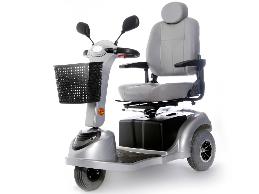On This Page
About Multiple Sclerosis
Multiple sclerosis is a chronic autoimmune disease of the central nervous system. It causes destruction of myelin (a protein that forms a protective coating around nerve cells) in the central nervous system. When myelin is destroyed signals traveling through the nerve cells are interrupted or delayed, resulting in various neurologic symptoms occurring at different locations throughout the body. The progress, severity, and specific symptoms of multiple sclerosis in any one person cannot yet be redacted, but advances in research and treatment are giving hope to those affected by the disease.
Multiple sclerosis is often characterized by a pattern of exacerbation and remission. Symptoms may be mild, such as numbness in the limbs, or severe, such as paralysis or loss of vision. Possible symptoms include fatigue, loss of coordination, muscle weakness, spasticity, numbness, slurred speech, visual difficulties, paralysis, muscle cramps, bladder or bowel problems, and sexual dysfunction.
The initial symptoms of MS are most often difficulty walking; abnormal sensations such as numbness or "pins and needles"; and pain and loss of vision due to optic neuritis, an inflammation of the optic nerve. Less common initial symptoms may include tremor; lack of coordination; slurred speech; sudden onset of paralysis, similar to a stroke; and decline in cognitive function.
JAN's Accommodation Solutions: Executive Functioning Deficits is a publication detailing accommodations for individuals with limitations related to executive functioning. These ideas may be helpful in determining accommodations. 11
Multiple Sclerosis and the Americans with Disabilities Act
The ADA does not contain a definitive list of medical conditions that constitute disabilities. Instead, the ADA defines a person with a disability as someone who (1) has a physical or mental impairment that substantially limits one or more "major life activities," (2) has a record of such an impairment, or (3) is regarded as having such an impairment. For more information about how to determine whether a person has a disability under the ADA, see How to Determine Whether a Person Has a Disability under the Americans with Disabilities Act Amendments Act (ADAAA).
Accommodating Employees with Multiple Sclerosis
People with multiple sclerosis may develop some of the limitations discussed below, but seldom develop all of them. Also, the degree of limitation will vary among individuals. Be aware that not all people with multiple sclerosis will need accommodations to perform their jobs and many others may only need a few accommodations. The following is only a sample of the possibilities available. Numerous other accommodation solutions may exist.
Questions to Consider:
- What limitations is the employee experiencing?
- How do these limitations affect the employee and the employee’s job performance?
- What specific job tasks are problematic as a result of these limitations?
- What accommodations are available to reduce or eliminate these problems? Are all possible resources being used to determine possible accommodations?
- Once accommodations are in place, would it be useful to meet with the employee to evaluate the effectiveness of the accommodations and to determine whether additional accommodations are needed?
- Do supervisory personnel and employees need training?
Accommodation Ideas:
Situations and Solutions:
The following situations and solutions are real-life examples of accommodations that were made by JAN customers. Because accommodations are made on a case-by-case basis, these examples may not be effective for every workplace but give you an idea about the types of accommodations that are possible.
JAN Publications & Articles Regarding Multiple Sclerosis
Publications
Consultants' Corner Articles
- A Support Person as an Accommodation
- Accommodations for Housekeeping/Janitorial Workers with Motor Impairments
- Accommodations Related to Commuting To and From Work
- Best Practices for Addressing Requests for Ergonomic Chairs
- Confidentiality of Medical Information under the ADA
- Hidden Disabilities: Confidentiality and Travel











